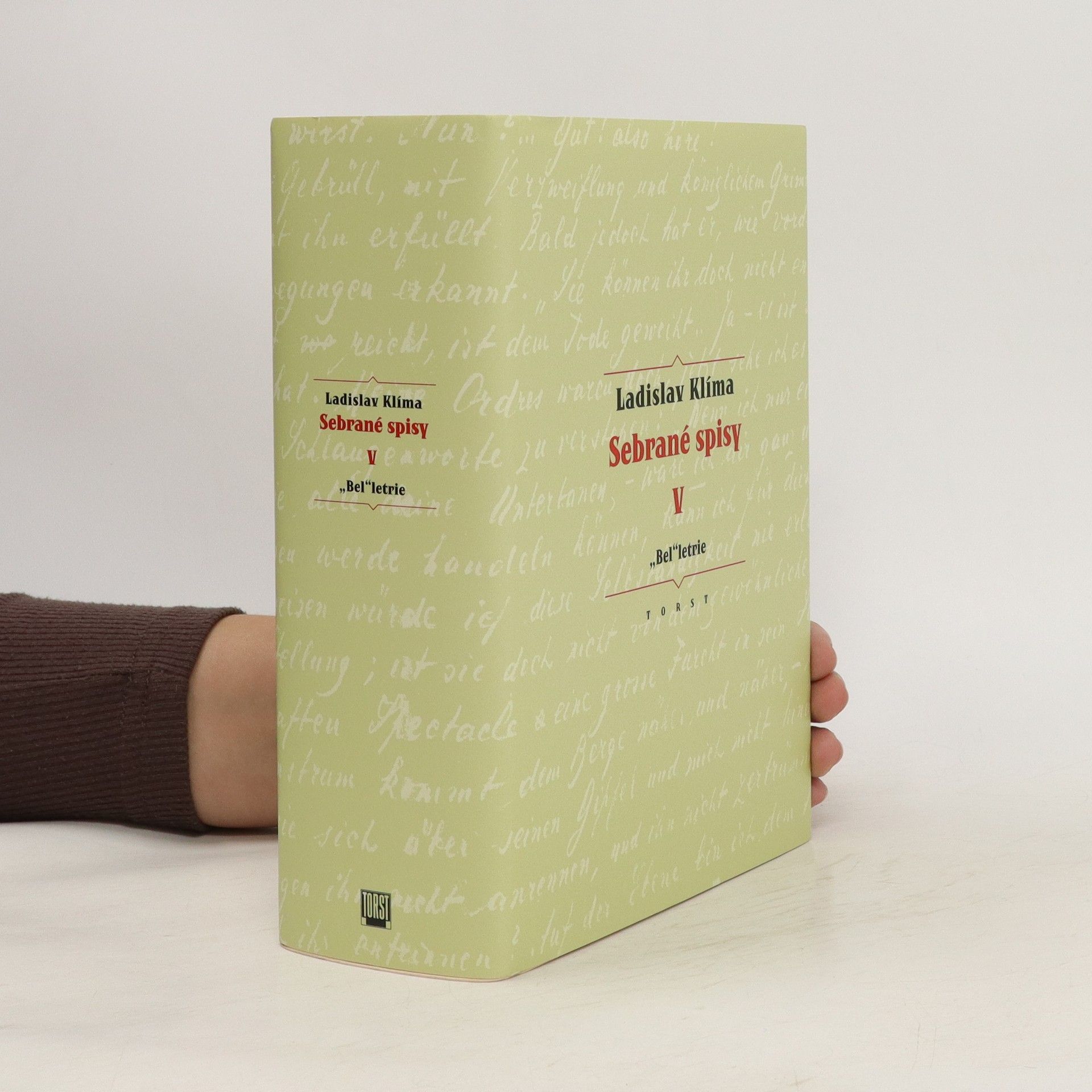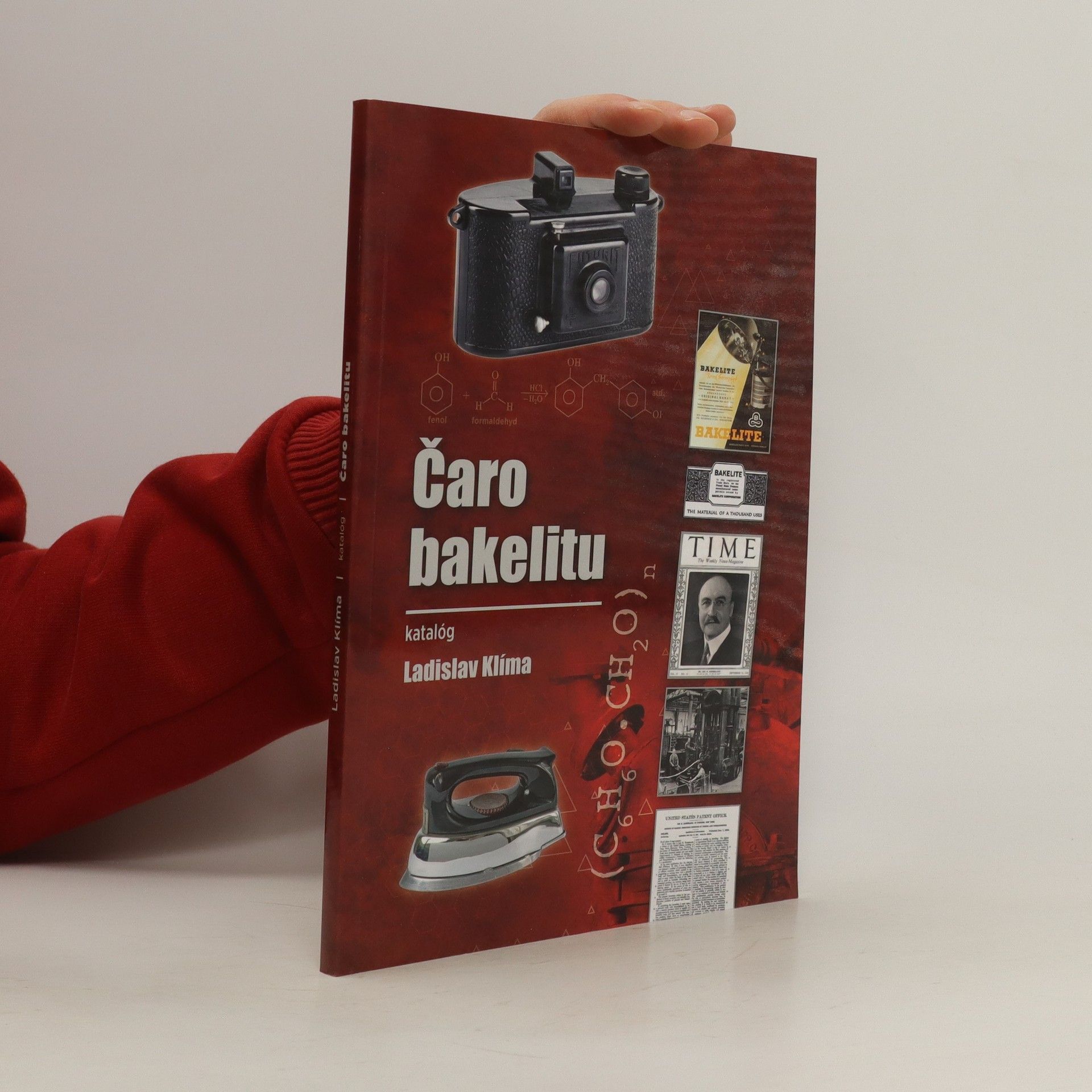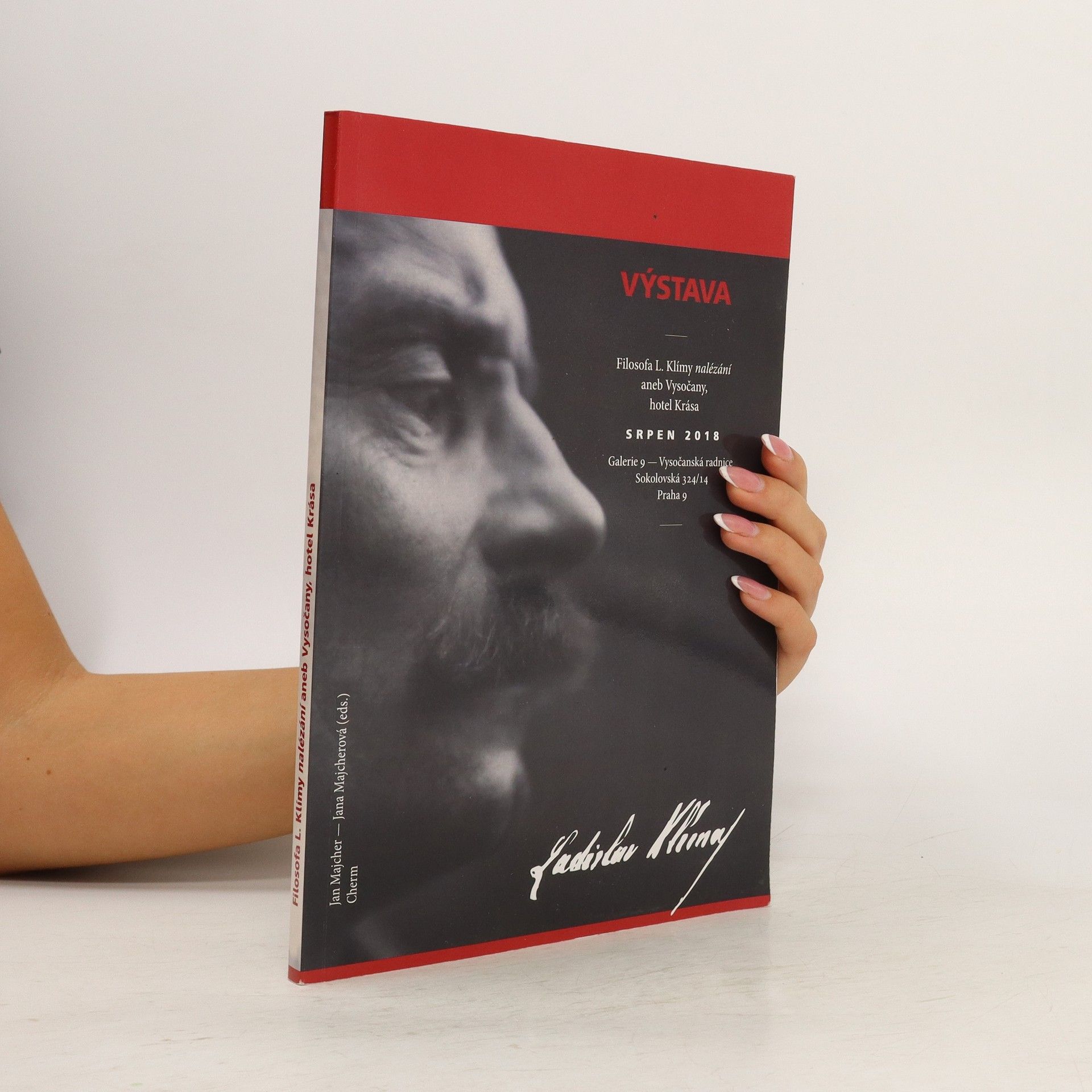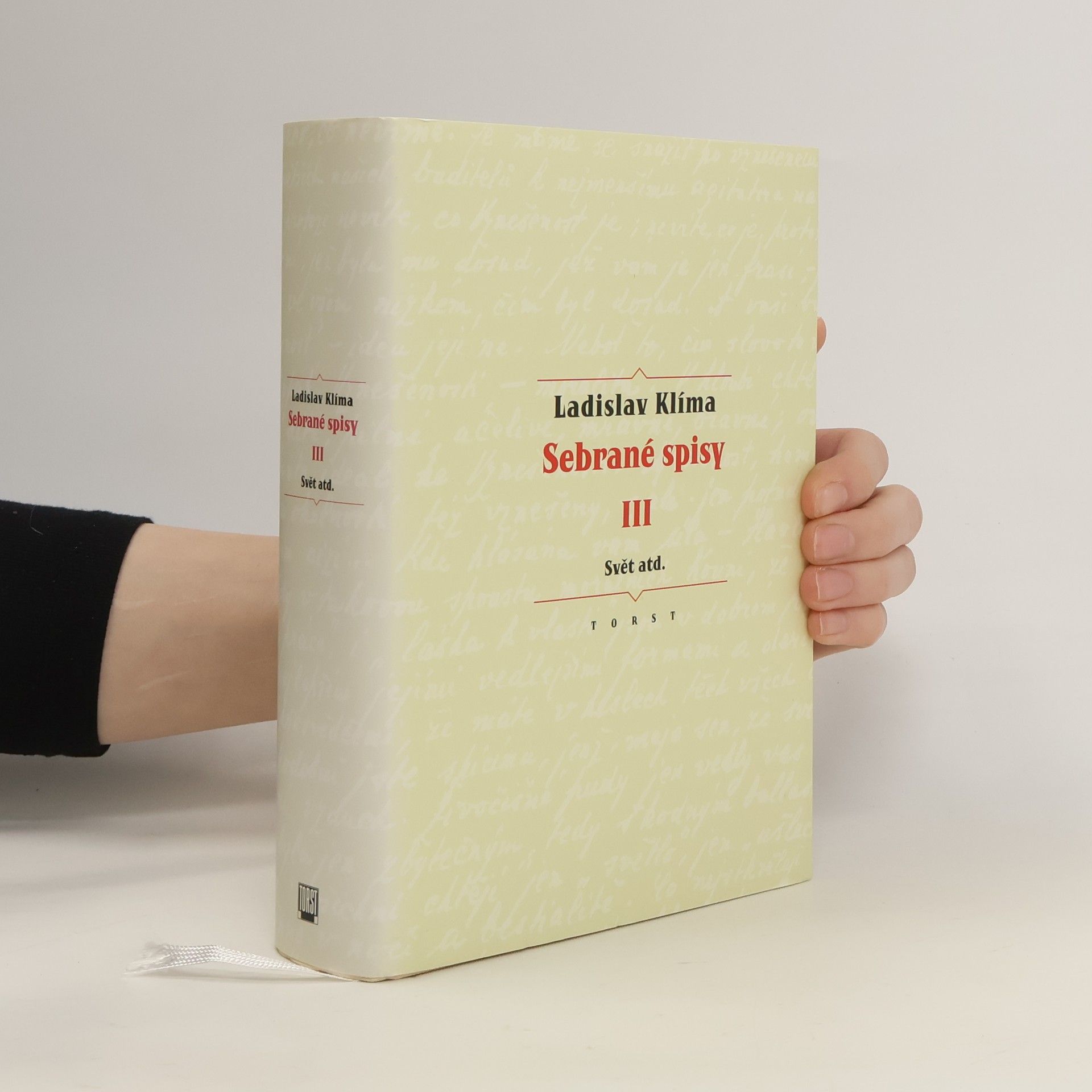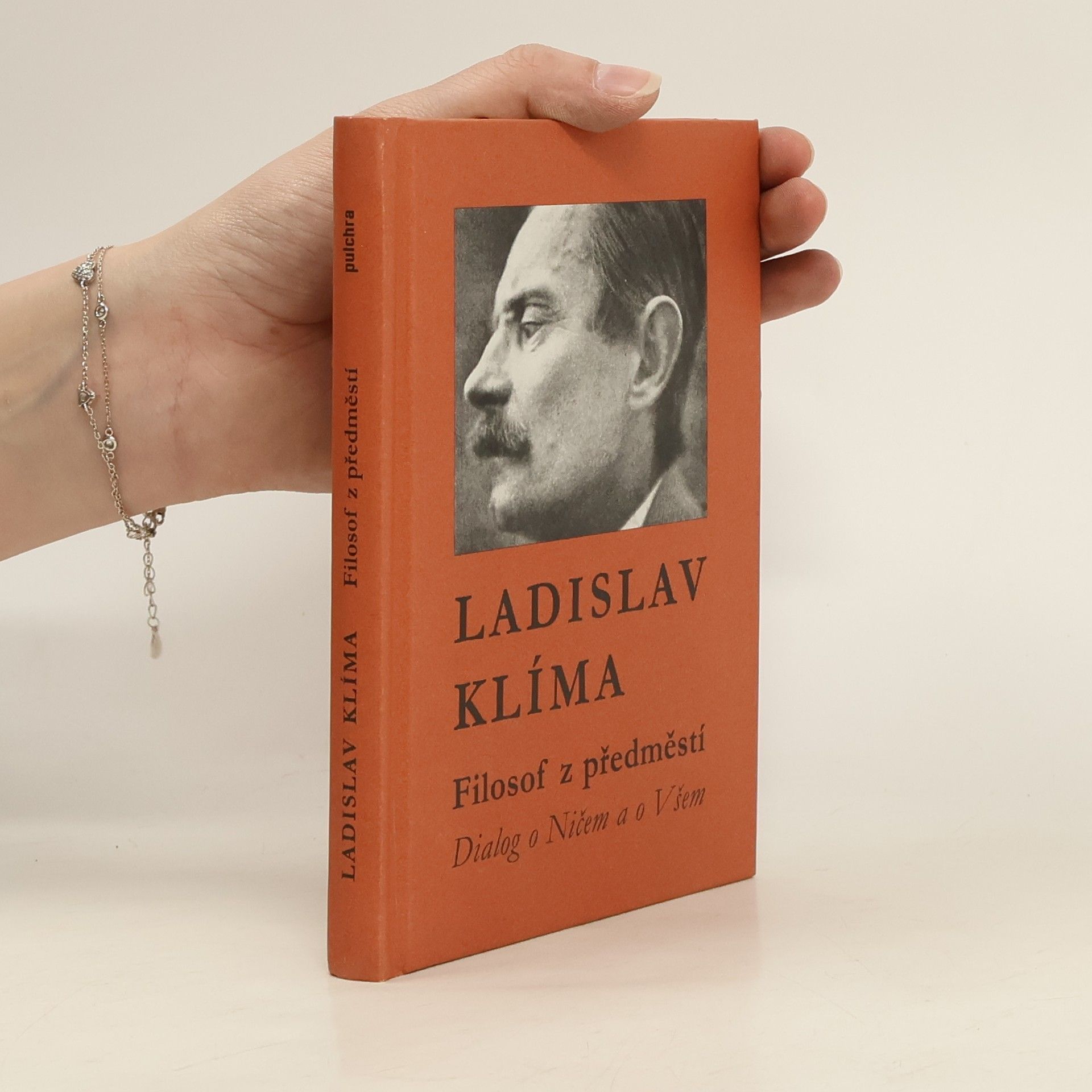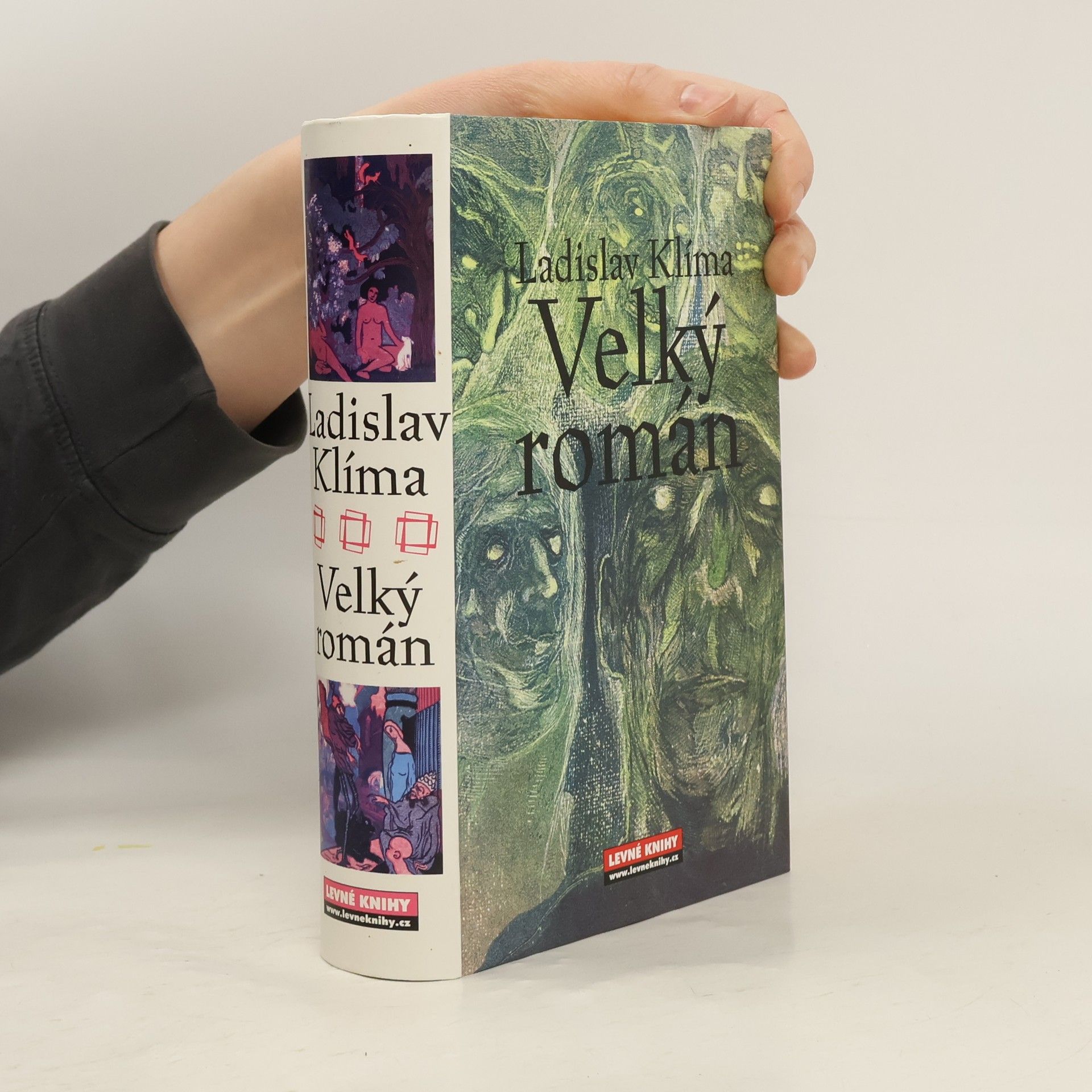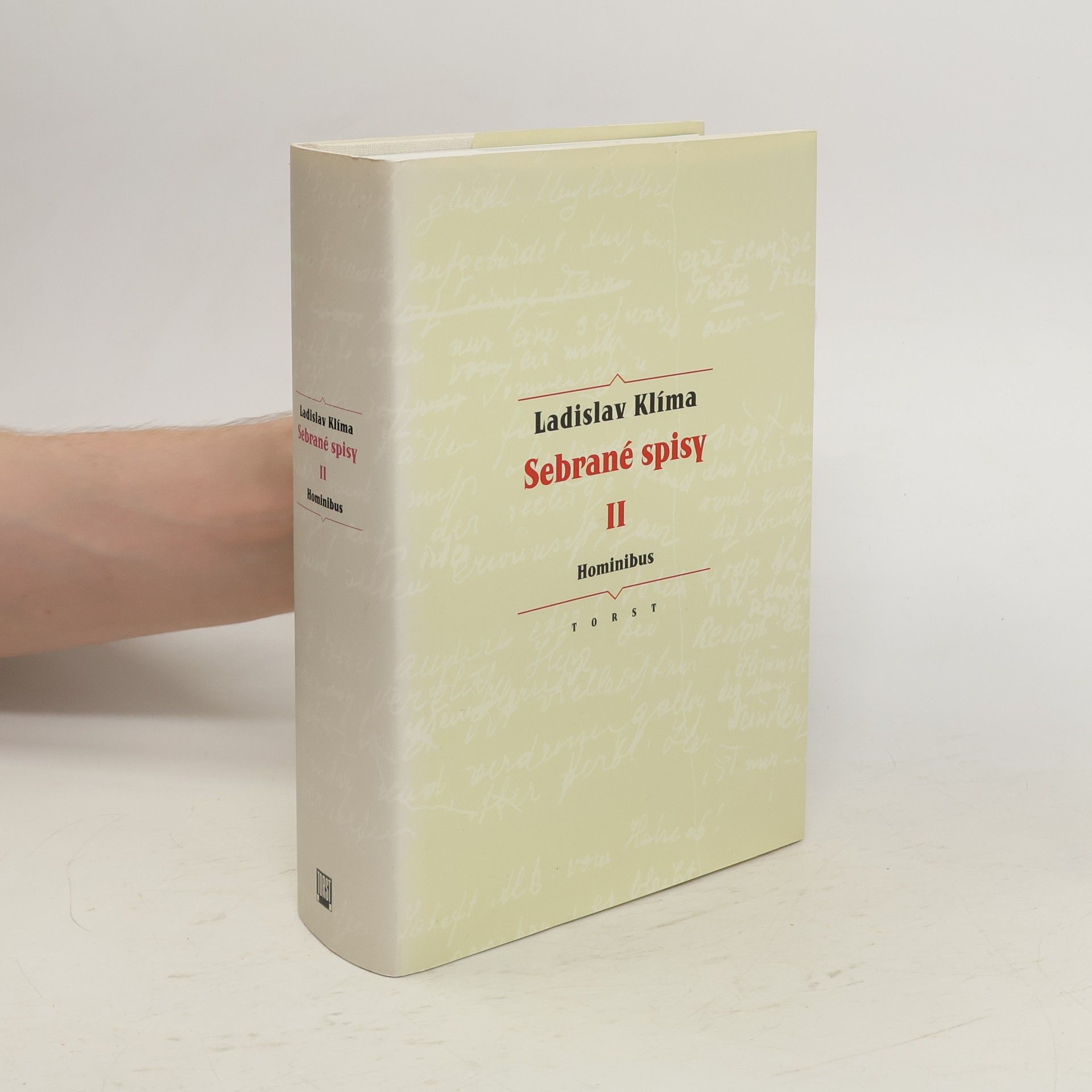V šestisvazkových Sebraných spisech Ladislava Klímy vyšly dosud čtyři svazky: I. Mea (texty o sobě samém), II. Hominibus (korespondence), III. Svět atd. (filosofické knihy a publicistika) a IV. Velký roman (nejrozsáhlejší Klímovo beletristické dílo). Editorkou Klímových Sebraných spisů je francouzská editorka a překladatelka Erika Abrams, nositelka čestného doktorátu Univerzity Karlovy. Svazek V. („Bel“letrie) je nejrozsáhlejším svazkem Klímových Sebraných spisů. Obsahuje všechny Klímovy prozaické práce s výjimkou Velkého románu. Editorka důsledně pracuje se všemi dochovanými Klímovými rukopisy a přináší čtenářům textově dokonalou diplomatickou edici, doprovozenou zevrubnou ediční poznámkou a nezbytnými vysvětlujícími komentáři – jako u všech čtyř předchozích svazků Klímových Sebraných spisů. Ladislav Klíma byl jeden z nejoriginálnějších českých filosofů a beletristů, jeho dílo ovlivnilo řadu oborů české umělecké tvorby (literaturu, film, divadlo, hudbu) a je dodnes velmi živé a podnětné. Přitom jsou to teprve Klímovy Sebrané spisy v edici Eriky Abrams, které poprvé přinášejí Klímovo dílo v úplnosti, textově spolehlivě a v řazení, jež odpovídá logice a šíři Klímovy tvorby.
Ladislav Klíma Book order (chronological)
Ladislav Klíma was a Czech philosopher and novelist whose work was influenced by thinkers such as George Berkeley, Schopenhauer, and Nietzsche. His philosophy, sometimes referred to as existentialism and at other times as subjective idealism, delves into profound questions of being. Klíma's distinctive style and penetrating insights continue to resonate in the literary world, appealing to readers seeking an unconventional perspective on reality. His writing is marked by a deep skepticism and an ironic detachment regarding the human condition.



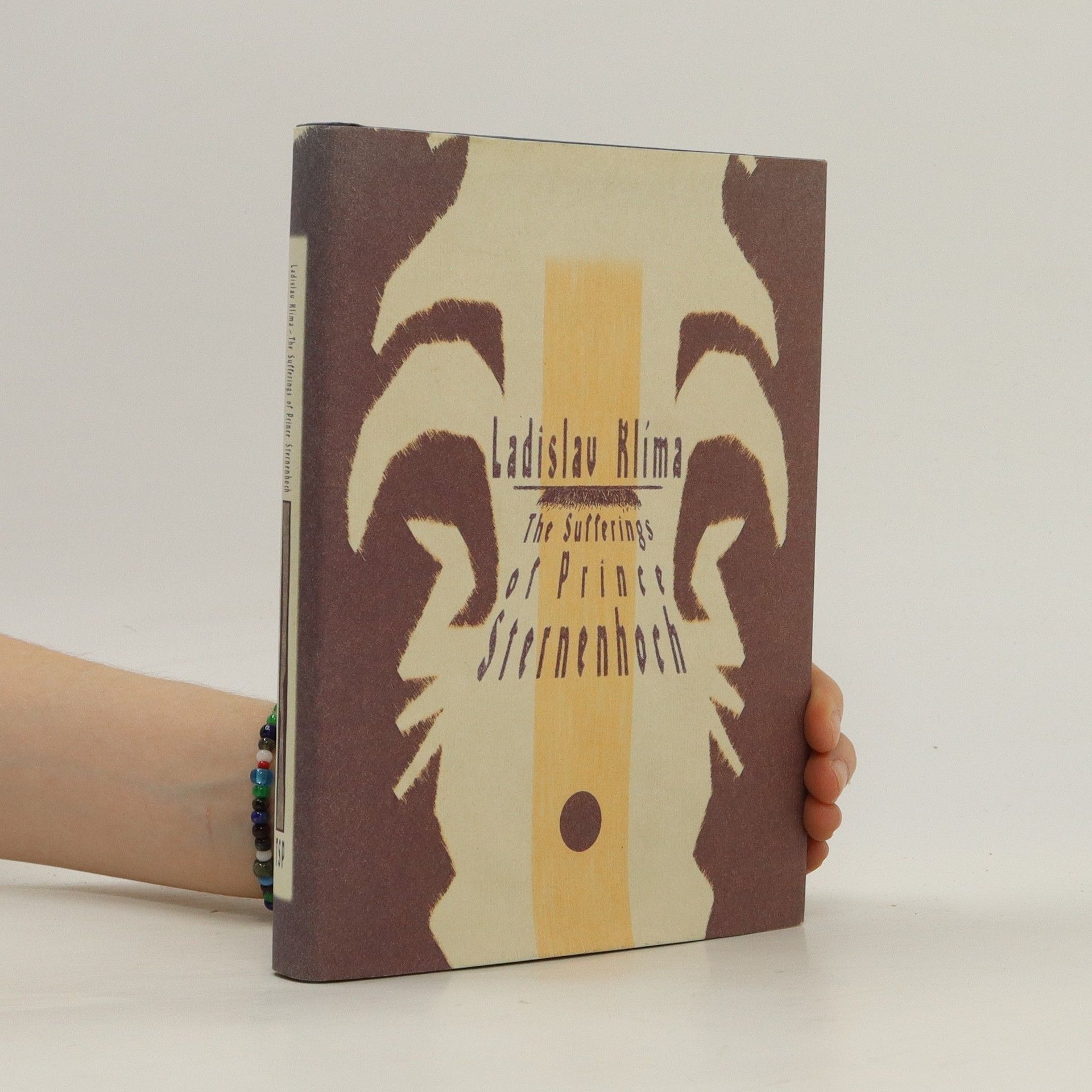

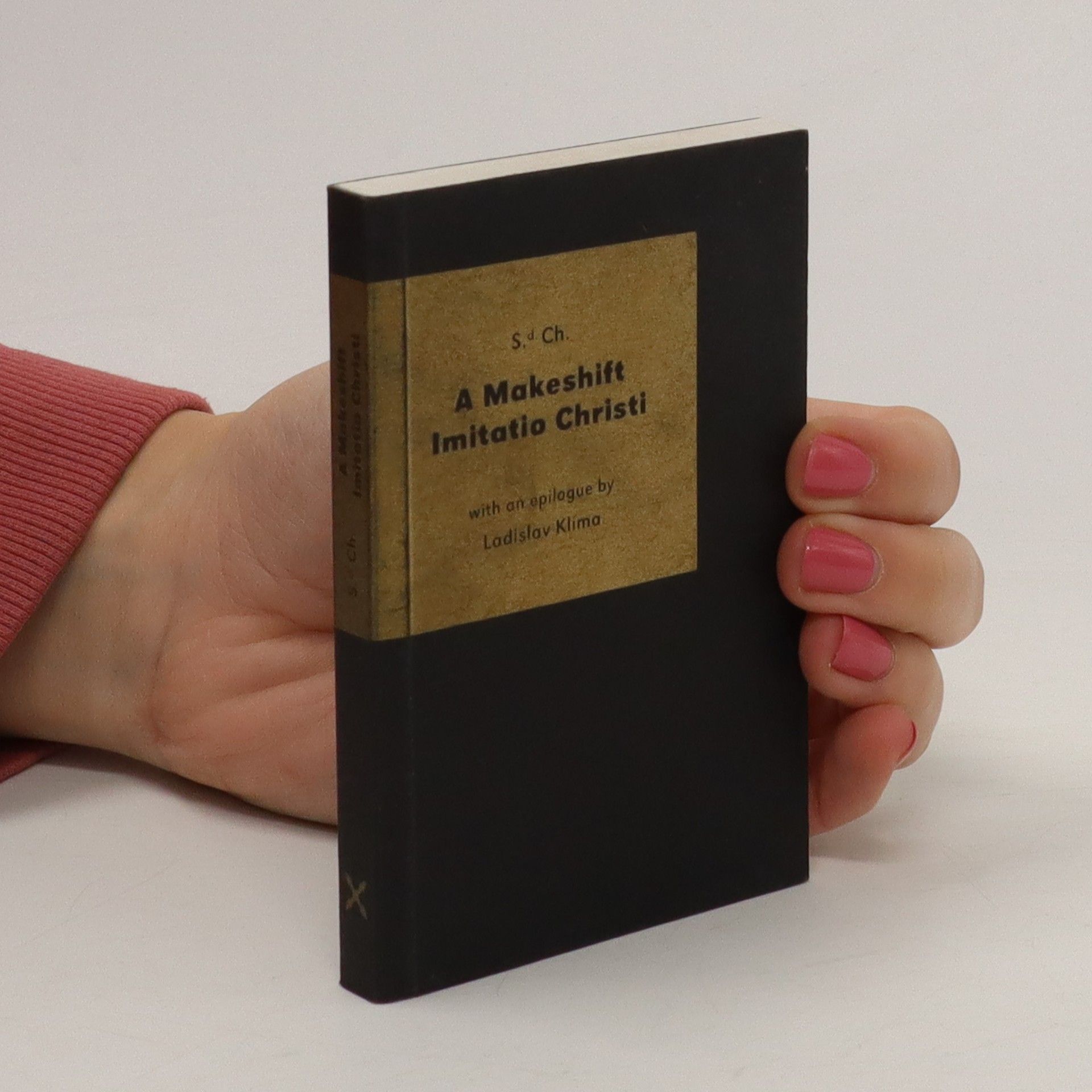
A Postmortem Dream
- 70 pages
- 3 hours of reading
This book, published by Twisted Spoon Press in Prague, showcases a notable ghost story by Ladislav Klíma. It centers on Matthias Lebermayer, a corpulent shopkeeper who finds himself in a surreal state of existence—either dead, dreaming, or caught in a blend of both. As he navigates these blurred realities, he is haunted by a mysterious man in a shabby suit, who utters the cryptic phrase: "Five fields I have passed." This phrase evokes a sense of dread and leads to disorienting shifts in time and space. Lebermayer grapples with the meaning of these words while his life intertwines with another. The narrative resonates with echoes of Poe and Plato's Myth of Er, delivered with Klíma's characteristic blend of horror, wit, and humor. Originally, only the first part of this novella was published in a magazine in 1920, accompanied by a brief coda. This format persisted in Czech editions for 70 years, despite Klíma's completion of a second part and notes for continuation, which remained unpublished. This translation brings together all existing material, complemented by exclusive illustrations from Pavel Růt for this limited edition.
Čaro bakelitu
- 143 pages
- 6 hours of reading
Kapitoly: Bakelit story, Raná éra plastov, Leo Hendrik Baekeland a vynález bakelitu, Stručný chronologický prehľad vývoja plastov, Počiatky výroby prvej syntetickej živice, Technológia výroby bakelitu, Výroba bakelitu na Slovensku - vznik závodu Gummon Bratislava, Vlastnosti a použitie bakelitu, Dizajn bakelitu, bakelitový štýl, Identifikácia a ošetrenie bakelitových predmetov. Katalóg: Rádioprijímače, Gramofóny, Telefónne prístroje, Svietidlá, Elektroinštalačný materiál, Autotransformátor a stabilizátor napätia, Elektrické vysávače, Elektrické stolové ventilátory, Elektrické žehličky, Elektrospotrebiče pre domácnosť, Sušiče vlasov, Holiace strojčeky, Liečebné prístroje, Šijací stroj Mewa, Hodiny, Teplomery, barometre, buzoly a kompasy, Fotografické prístroje a príslušenstvo, Projektory, Váhy, Mlynčeky na kávu, Ručné šľahače, Spotrebné predmety pre domácnosť, Kancelárske potreby, Hračky, Akváriové kompresory, Náradie a nástroje, Merače tlaku pneumatík, Elektrické meracie prístroje.
Filosofa L. Klímy nalézání aneb Vysočany, hotel Krása
- 120 pages
- 5 hours of reading
Katalog k výstavě konané v srpnu 2018 v pražské Galerie 9 uspořádali Jan a Jana Majcherovi. Vydáno v omezeném nákladu 70 číslovaných výtisků. Katalog obsahuje fota a přepisy dobových textů a dokumentů. Navazuje na obdobnou publikaci vydanou roku 2010 k výstavě Filosofa L. Klímy nalézání v Záběhlicích, p. Zbraslav. Zatímco zbraslavská výstava se věnovala okolnostem vstupu šestadvacetiletého mladíka do oblasti tištěného slova, přítomná publikace dostihuje Klímu, který prožil významnou část života (1915-1927) v azylu mytického vysočanského hotelu Krása, na vrcholu a pak i na opačném konci oblouku jeho životaběhu.
Z šestisvazkových Sebraných spisů Ladislava Klímy dosud vyšly tři obsáhlé svazky: I. Mea (filosofův deník), II. Hominibus (filosofova korespondence) a IV. Velký roman (nejrozsáhlejší Klímovo beletristické dílo). Svazek III. Philosophica žurnalistica obsahuje veškerou Klímovu filosofickou tvorbu psanou pro dobové zveřejnění (knihy /Svět jako vědomí a nic, Traktáty a diktáty, Vteřina a věčnost/, články, studie, náčrty, rukopisy), přičemž editorka Erika Abrams důsledně pracuje se všemi dochovanými Klímovými autentickými rukopisy a přináší čtenářům textově dokonalou diplomatickou edici, doprovozenou vyčerpávající ediční poznámkou a nezbytnými vysvětlujícími komentáři – jako u všech tří předchozích svazků. Ladislav Klíma byl jeden z nejoriginálnějších českých filosofů, jeho dílo ovlivnilo řadu oborů české umělecké tvorby (literaturu, film, divadlo, hudbu) a je dodnes živé a podnětné. Jeho Sebrané spisy v ediční přípravě Eriky Abrams přinášejí vůbec poprvé Klímovo dílo v úplnosti, textově spolehlivě připravené.
A Makeshift Imitatio Christi
- 110 pages
- 4 hours of reading
The testament of a man who stole and, in the depths of post-nature, rubbished the ashes of the practical philosopher Ladislav Klíma. BOOK – ARABLE LAND – BUSINESS, BETWEEN PIOUSNESS AND BLASPHEMY THERE LIES AWKWARDNESS, BETWEEN MODŘANY AND KOMOŘANY THERE LIES POST-NATURE, BETWEEN ART BETWEEN, 100 years after Cholupice Day, 5 years after the dusting of the philosopher, with the setting of the sun at the site of said dusting, we will commence trafficking in testimony of said dusting, including a last will and testament containing a moral.
Málo známý text Ladislava Klímy vydaný na sklonku dvacátých let nejprve jako anonym. Drobná, ale úderná próza, v níž autor vede disputaci nad tématy postavení člověka v kulturním a sociálním prostředí, zaobírá se například kumulací bohatství či nesmyslností válek, hledá směr, kterým se ubírá moderní civilisace. Vede dialog o ničem a o všem a rovnou nabízí své svérázné odpovědi. Vychází v novém vydání nyní s doslovem Lubomíra Martínka.
Velký román filosofa Ladislava Klímy patří k fundamentálním dílům české literatury.Ve Velkém románu se podobně jako v jiných Klímových beletristických dílech snoubí braková literatura v tom nejlepším smyslu slova s literární projekcí autorových filozofických myšlenek, ovlivněných zejména Friedrichem Nietzschem a Arthurem Schopenhauerem.
Po svazcích IV (Velký roman) a I (Mea) vychází již třetí svazek Sebraných spisů filosofa Ladislava Klímy v ediční přípravě a s rozsáhlými komentáři Eriky Abrams. Zatímco Mea znamenalo „Moje“, Hominibus znamená „pro lidi“. Klímova korespondence ve svazku Hominibus obsahuje 379 nevýlučně filosofických, nýbrž i milostných, žebravých, pijáckých a jinak „příležitostně“ prožitých listů osmadvaceti adresátům, zde tištěných poprvé v celkové souvislosti, ba z velké části vůbec poprvé. K výslednému, v lecčems překvapivému Klímovu autoportrétu přispívá i přijatá korespondence, zpřítomněná zde v rámci edičního komentáře a poznámkového aparátu, a pět dosud neznámých odnoží filosofových rozhovorů zařazených do příloh.
